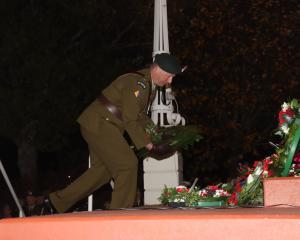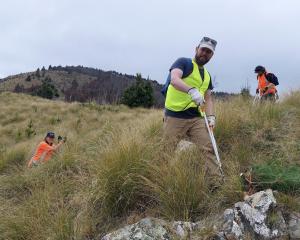The demise of the Otago branch of the Royal New Zealand Air Force Association marks the beginning of a gradual, but inevitable, disappearance of specialist returned servicemen's groups, the association's chairman says.
Chairman and national secretary Charles Cooke, from Northland, said a high percentage of the association's membership was made up of people involved with the air force during World War 2, most of them now aged more than 80.
Even those who served in later wars were now mostly in their 70s.
Many older members were not willing, or able, to take over administration of the groups and it was difficult to attract younger air force members, Mr Cooke said.
Two branches - Otago and Christchurch - had closed in the past three years, leaving 28 branches still operating.
"They're not falling over like dominoes, but I would expect a few more to close in the next few years."
The Otago branch held its closing meeting in Dunedin this week, disbanding after 60 years of existence.
Mr Cooke said the association was aware of the problems with ageing membership and had set up a committee dedicated to attracting younger people to join.
But the association recognised the many pressures on younger people's spare time and that their priorities were not with joining clubs.
The membership decline was not a new phenomenon, but numbers had been gradually dwindling as people aged and died.
When the association started in 1945, the Auckland branch alone had 4000 members.
Now, the entire group had only 2000 members.
"And we will keep going as long as people want us to keep going."
The Otago branch would have disbanded two years ago if it were not for the efforts of regional chairman Lloyd Stridiron, of Invercargill, who had taken on much of the administration, Mr Cooke said.
All armed services groups faced the same problems.
"Even some of the smaller Returned Services Associations are closing down."
There was a national trend towards people with no military service taking major administrative roles, which was good for groups like the RSA, but smaller groups did not attract those people.
"The RSA will always carry on.
It's just sad the little splinter groups of specialist interests will probably fail."












